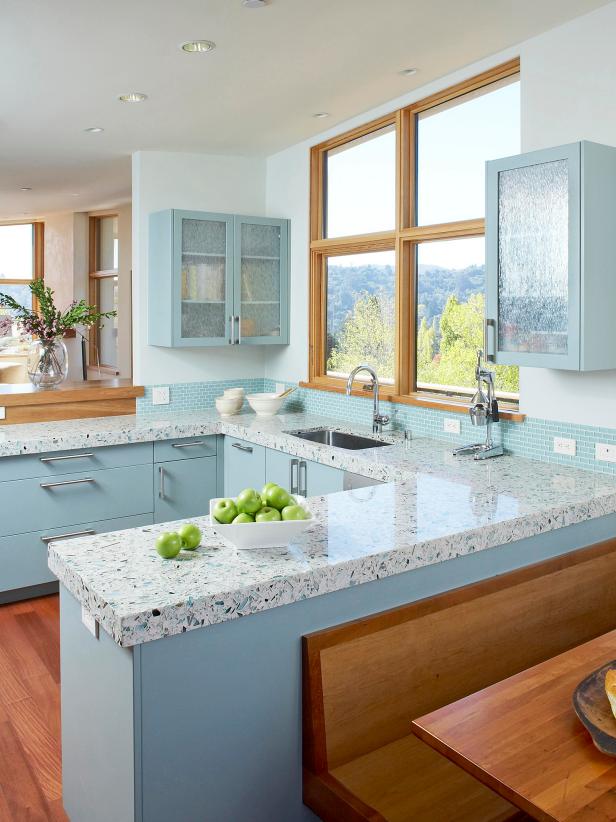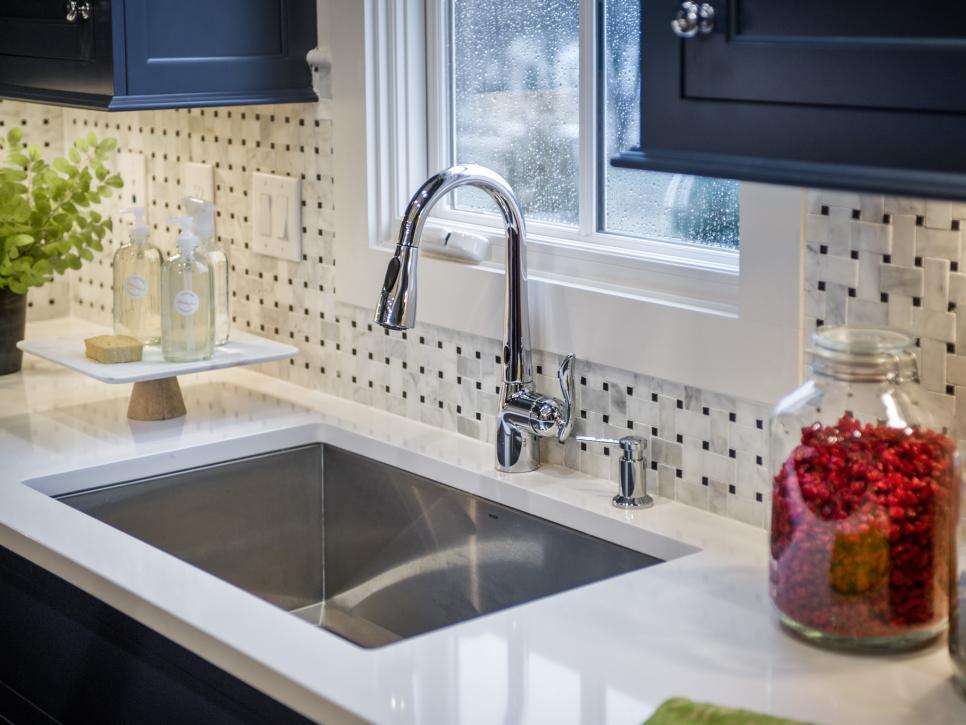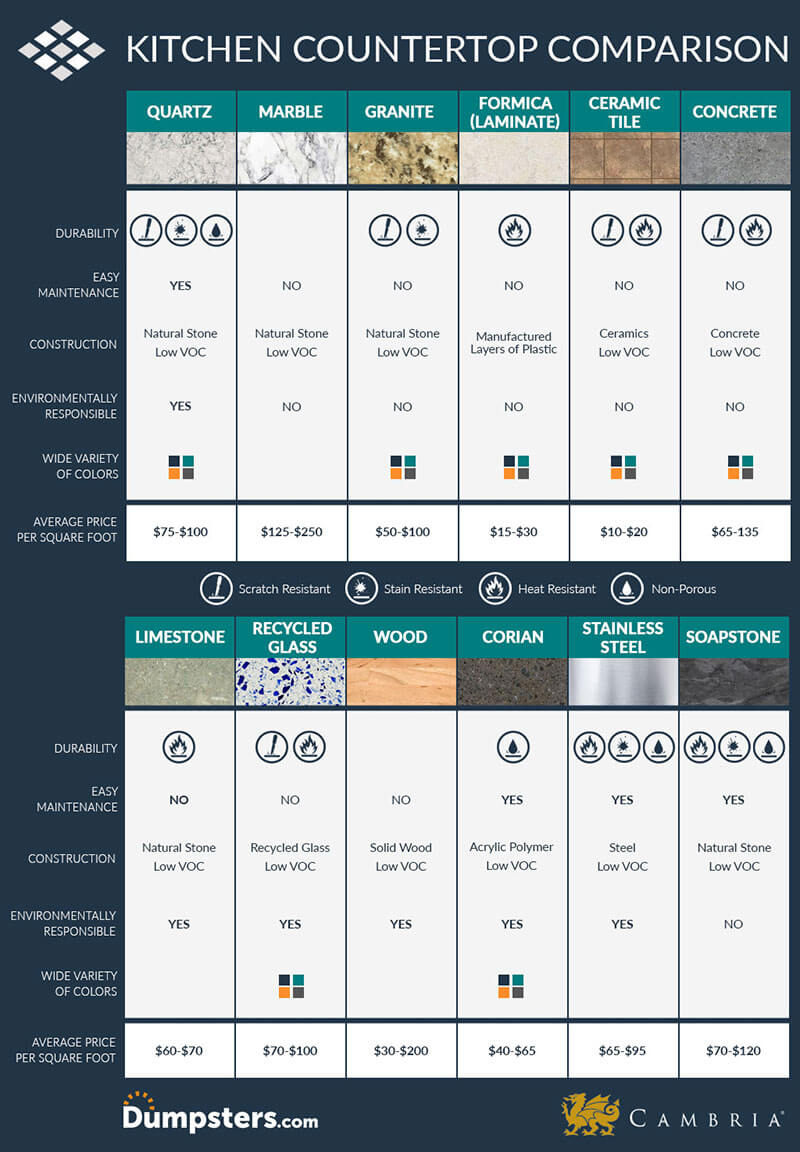When it comes to kitchen countertops, the sheer variety of material options can be overwhelming. Each material has its own set of benefits and drawbacks, making the decision process a bit tricky. I’ve explored several options to help you make a well-informed choice that aligns with your lifestyle, budget, and aesthetic preferences.
Granite is often the first material that comes to mind when thinking about kitchen countertops. Its natural beauty and durability have made it a popular choice for decades. Granite is incredibly resilient to heat and scratches, which makes it ideal for those who do a lot of cooking. It’s also available in a wide range of colors and patterns, so you can find a style that matches almost any kitchen design. However, granite does require periodic sealing to maintain its resistance to stains, and it can be on the expensive side.
Quartz countertops, which are engineered from natural quartz and resin, have gained popularity in recent years. They offer the beauty of natural stone but with added durability. Quartz is non-porous, which means it doesn’t require sealing and is resistant to stains, bacteria, and mold. This makes it a great choice for a busy kitchen. Another advantage is that quartz countertops come in a wide variety of colors and patterns, including options that mimic the look of marble or granite. On the downside, quartz can be expensive, and it’s not as heat-resistant as some natural stones, so you’ll need to be cautious with hot pots and pans.
Marble is another luxurious option that has been used in kitchens for centuries. Its timeless elegance and unique veining patterns can make any kitchen look stunning. Marble is a softer stone, which means it’s more prone to scratches and stains. It also requires regular sealing to protect it from spills, especially from acidic substances like wine or citrus juice. Marble can be a high-maintenance option, but if you’re willing to put in the effort, it can add a touch of sophistication to your kitchen.

If you’re looking for something more budget-friendly, laminate countertops might be the way to go. Laminate is made from layers of plastic bonded to particleboard, which makes it one of the most affordable options on the market. It’s available in a wide range of colors and patterns, some of which can even mimic the look of more expensive materials like granite or wood. While laminate is resistant to stains and easy to clean, it’s not as durable as other materials. It can be prone to scratches, and if it’s damaged, it’s difficult to repair. Additionally, laminate countertops are not heat-resistant, so you’ll need to use trivets or hot pads.
Solid surface countertops, such as Corian, are another versatile option. They’re made from a blend of acrylic or polyester resins and can be seamlessly fabricated to include integrated sinks and backsplashes. Solid surface countertops are non-porous, making them resistant to stains and easy to clean. They’re also repairable, which is a significant advantage if you end up with scratches or minor burns. However, they can be more susceptible to heat damage compared to stone options, and some people find that they lack the depth and richness of natural stone.
Wood or butcher block countertops offer a warm, natural look that’s hard to replicate with other materials. They’re particularly popular in country or farmhouse-style kitchens. Wood countertops are relatively easy to maintain; regular oiling can help prevent drying and cracking. They’re also naturally antibacterial. However, wood is prone to scratches, dents, and water damage, so it’s not the best choice if your kitchen sees a lot of heavy use. You’ll also need to be careful about placing hot pots directly on the surface, as wood can scorch.

Concrete countertops have become increasingly popular in modern and industrial-style kitchens. They’re highly customizable, with options for color, texture, and finish. You can even embed materials like glass or stones for a unique look. Concrete is extremely durable and heat-resistant, but it does require sealing to prevent staining. One downside is that concrete can develop hairline cracks over time, which can be a concern for some homeowners. Additionally, concrete countertops are heavy and may require reinforced cabinetry to support their weight.
Stainless steel countertops are a favorite in professional kitchens for a reason. They’re incredibly durable, resistant to heat, and easy to clean, making them ideal for a serious home cook. Stainless steel also has a sleek, modern look that can work well in contemporary kitchens. However, it’s prone to scratching and fingerprints, which can be difficult to keep up with if you like your kitchen looking pristine. Additionally, stainless steel can be noisy, especially when placing pots and pans on the surface.
Soapstone is a natural stone that has been used for centuries in kitchens. It has a smooth, matte finish and comes in shades of gray that can darken over time. Soapstone is non-porous, which makes it resistant to stains and bacteria. It’s also heat-resistant, so you can place hot pots directly on the surface without worry. However, soapstone is a softer stone, so it’s more prone to scratches and dents. Some people like the patina that develops over time, while others may find it too high-maintenance.
Recycled glass countertops are an eco-friendly option that’s gaining popularity. These countertops are made from recycled glass pieces embedded in a resin or concrete base. They’re available in a variety of colors and patterns, and the glass can give your kitchen a unique, sparkling look. Recycled glass countertops are durable and resistant to stains, but they can be prone to chipping, especially along the edges. They also require sealing to protect against stains and moisture.

Tile countertops are a versatile option that can be customized to fit almost any design style. They’re available in a wide range of colors, sizes, and materials, including ceramic, porcelain, and natural stone. The tile is heat-resistant and relatively affordable, making it a practical choice for many homeowners. However, the grout lines between tiles can be challenging to keep clean, and tiles can crack or chip over time. If you’re considering tile, make sure to choose a high-quality grout that’s stain-resistant.
If you’re drawn to a more rustic or industrial look, brick countertops might be worth considering. Brick is incredibly durable and can withstand heat, making it a good choice for cooking-heavy kitchens. The rough texture of brick can add character to your kitchen, but it can also be challenging to clean. Like tile, brick countertops have grout lines that can attract dirt and grime, and they may require periodic sealing to protect against stains.
A more unconventional option is the use of composite materials, which combine different elements like recycled paper, resin, or metal to create unique and sustainable countertops. These materials are often eco-friendly and can be customized to fit your design preferences. Composite countertops are generally durable and resistant to stains, but their performance can vary depending on the specific materials used. They can also be on the pricier side, depending on the customization.
Last, glass countertops can add a sleek, modern touch to your kitchen. Glass is non-porous, making it resistant to stains and bacteria. It’s also heat-resistant, so you don’t have to worry about placing hot pots directly on the surface. However, glass can be prone to scratching, and if it’s not tempered, it can be more susceptible to chipping or cracking. Glass countertops are also on the expensive side, but their unique look can be worth the investment if you’re going for a contemporary design.

Common Mistakes to Avoid
When choosing a kitchen countertop, one common mistake is not considering your lifestyle. For example, if you’re an avid cook, you might regret choosing a material that’s not heat-resistant or prone to staining. Another mistake is overlooking maintenance requirements. Some materials, like marble or wood, require regular upkeep, which can be a hassle if you prefer low-maintenance options. It’s also important to consider your budget realistically. While high-end materials like quartz or granite are beautiful, they can be expensive, and there are more affordable alternatives like laminate or tile that can still look great.
Additionally, not thinking about the long-term durability of the material can lead to regrets down the line. Choosing a trendy material without considering how it will hold up over time can result in frequent repairs or even replacements. Finally, don’t forget about the installation costs. Some materials, like concrete or natural stone, may require professional installation, which can add to the overall expense.

What is the most durable kitchen countertop material?
Quartz is generally considered one of the most durable countertop materials. It’s engineered to be non-porous, stain-resistant, and scratch-resistant. It also doesn’t require sealing, making it a low-maintenance option. However, while quartz is durable, it’s not completely immune to damage, especially from extreme heat.
How do I maintain my granite countertops?
Maintaining granite countertops involves regular cleaning with a mild detergent and water. It’s also essential to reseal the countertops periodically, usually once a year, to maintain their stain resistance. Avoid using harsh chemicals or abrasive cleaners, as they can damage the sealant and the stone itself.
Can I place hot pots directly on my countertop?
This depends on the material. Granite, quartz, and stainless steel are generally heat-resistant, but it’s still a good idea to use trivets or hot pads to prevent potential damage. Materials like laminate, wood, and solid surfaces are more susceptible to heat damage and should always be protected from hot pots and pans.

Is marble a good choice for a kitchen countertop?
Marble is a beautiful and luxurious option, but it’s not the most practical choice for everyone. It’s prone to scratching and staining, especially from acidic substances. If you’re willing to put in the effort for regular maintenance, marble can be a stunning addition to your kitchen, but it requires careful consideration.
What’s the difference between quartz and quartzite?
Quartz countertops are engineered from natural quartz combined with resin, making them non-porous and easy to maintain. Quartzite, on the other hand, is a natural stone that’s harder and more heat-resistant than quartz but requires sealing to protect against stains. Both have their pros and cons, depending on your needs.
How do I choose the right countertop material for my kitchen?
To choose the right countertop material, consider your lifestyle, budget, and design preferences. Think about how much cooking you do, whether you prefer low-maintenance options, and what kind of aesthetic you want for your kitchen. It’s also helpful to see samples in person to get a feel for the texture and color before making a decision.

Related articles: